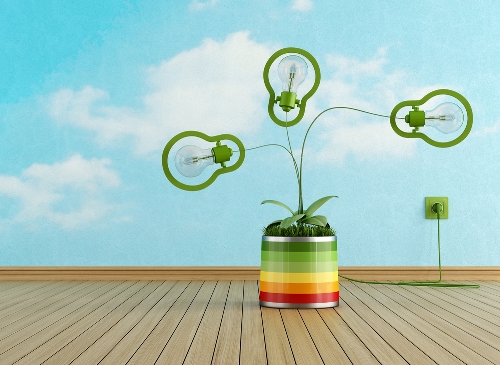Close your curtains
· Sunlight, especially from east- or west-facing windows, can send our inside temperatures soaring, so close your curtains, blinds, what have you before you leave for work and open them again once the sun goes down. It’ll help keep your cooling costs low.
· Set your thermostat higher when you’re not home: this one is talked about over and over, but it really does work. By setting your home’s temperature to 78°F or above when you’re home (and higher when you’re away), you reduce the amount of energy your air conditioning system uses. It’ll save you money, really.
Use Your Windows to Gain Cool Air and Keep Out Heat
· If you live in a climate where it cools off at night, turn off your cooling system and open your windows while sleeping. When you wake in the morning, shut the windows and blinds to capture the cool air.
Operate Your Thermostat Efficiently
· Set your thermostat as high as comfortably possible in the summer. The smaller the difference between the indoor and outdoor temperatures, the lower your overall cooling bill will be.
· Keep your house warmer than normal when you are away, and lower the thermostat setting to 78°F (26°C) only when you are at home and need cooling. A programmable thermostat can make it easy to set back your temperature.
· Avoid setting your thermostat at a colder setting than normal when you turn on your air conditioner. It will not cool your home any faster and could result in excessive cooling and unnecessary expense.
· Avoid placing lamps or TV sets near your room air-conditioning thermostat. The thermostat senses heat from these appliances, which can cause the air conditioner to run longer than necessary.
Fan and Ventilation Strategies
· If you use air conditioning, a ceiling fan will allow you to raise the thermostat setting about 4°F with no reduction in comfort.
· Turn off ceiling fans when you leave the room. Remember that fans cool people, not rooms, by creating a wind chill effect.
· When you shower or take a bath, use the bathroom fan to remove the heat and humidity from your home. Your laundry room might also benefit from spot ventilation. Make sure bathroom and kitchen fans are vented to the outside (not just to the attic).
Keep Your Cooling System Running Efficiently
· Schedule regular cleaning for your cooling equipment.
· Learn about operating and maintaining your air conditioner, evaporative cooler, or heat pump.
· Vacuum registers regularly to remove any dust buildup. Ensure that furniture and other objects are not blocking the air flow through your registers.
· You’ll also want to make sure you’re taking care of the routine maintenance click here for a list of what you should doing.
Don’t Heat Your Home with Appliances and Lighting
· On hot days, avoid using the oven; cook on the stove, use a microwave oven, or grill outside.
· Minimize activities that generate a lot of heat, such as running a computer, burning open flames, running a dishwasher, and using hot devices such as curling irons or hair dryers. Even stereos and televisions will add some heat to your home.
· Install efficient lighting that runs cooler. Only about 10%–15% of the electricity that incandescent lights consume results in light—the rest is turned into heat.
· Take advantage of daylight instead of artificial lighting, but avoid direct sunlight.
Keep Hot Air from Leaking Into Your Home
· Seal cracks and openings to prevent warm air from leaking into your home.
· Add caulk or weather stripping to seal air leaks around leaky doors and windows.
